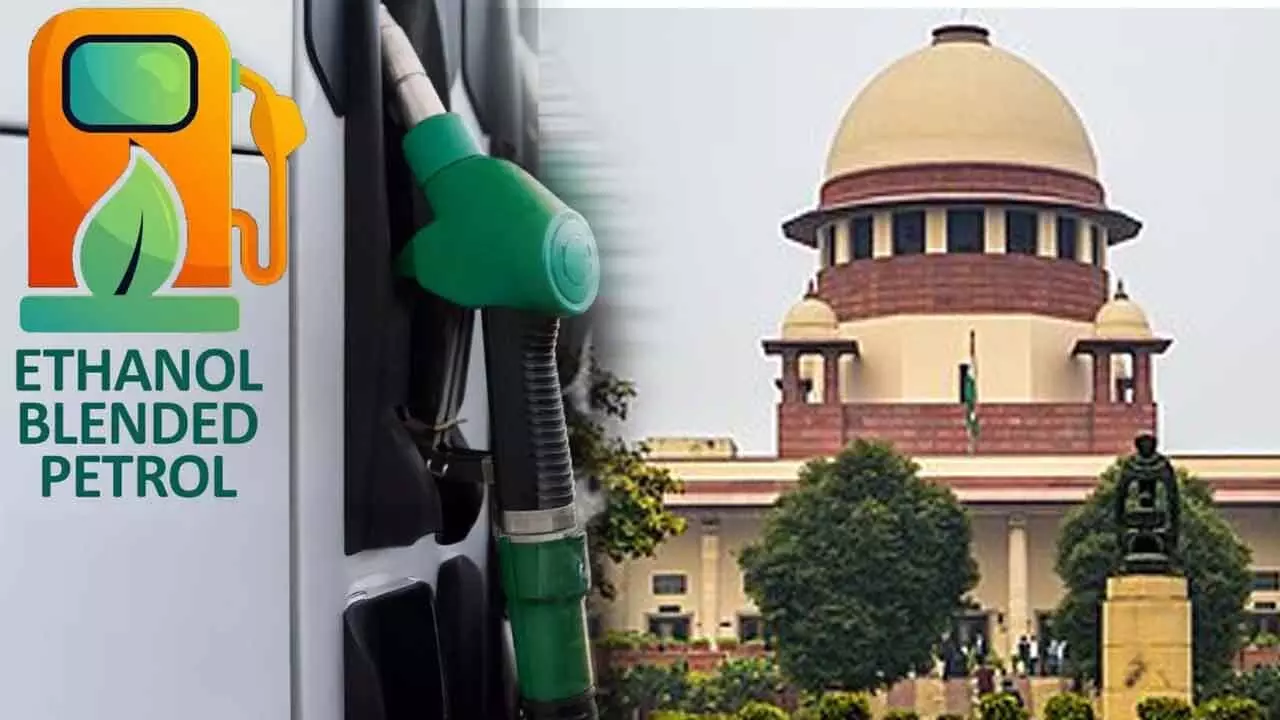India’s ethanol-blended petrol policy faces PIL over efficiency, safety, and cost concerns
SC plea says E20 petrol damages vehicles, cuts mileage; demands E0 option and consumer disclosure at fuel pumps.
SC plea opposes Centre’s ethanol blending policy, cites vehicle damage, consumer rights

NEW DELHI — A Public Interest Litigation (PIL) filed in the Supreme Court has challenged the Union Government’s Ethanol Blending Programme, which mandates the nationwide sale of petrol with 20% ethanol (E20). The petitioner seeks directions to make ethanol-free petrol (E0) available for consumers, arguing that millions of vehicles on Indian roads are not compatible with the higher ethanol blend.
Petitioner cites violation of consumer rights
The plea, filed by Advocate Akshay Malhotra, argues that the absence of an ethanol-free fuel option violates fundamental rights and the Consumer Protection Act, 2019, as motorists are not given informed choices.
“Most Indians are unaware that the fuel they buy is no longer 100% petrol,” the petition states, warning that non-disclosure of ethanol content amounts to withholding material information.
Technical and economic concerns highlighted
The PIL claims that E20 petrol:
♦ Reduces fuel efficiency, increasing consumption and costs.
♦ Corrodes engine components, leading to premature wear and tear.
♦ Damages fuel lines and rubber/plastic parts, causing higher maintenance bills.
♦ Triggers insurance disputes, as claims are denied for ethanol-related damage.
The petitioner contends that vehicles manufactured before April 2023 are largely incompatible with E20 fuel, and even some BS-VI compliant vehicles made in the last two years support only E10.
Price, safety, and global comparisons
Despite ethanol being cheaper than petrol, the price of E20 petrol has not been reduced for consumers. The PIL alleges that oil companies are retaining cost savings, instead of passing them to motorists.
The plea also points to global practices:
♦ US and EU: Ethanol-free petrol (E0) is still available, and pumps carry clear ethanol content labels.
♦ India: No disclosure at pumps; only ethanol-blended fuel is sold, leaving motorists “in the dark.”
Reliefs sought from Supreme Court
The PIL requests the Court to:
♦ Ensure ethanol-free petrol (E0) availability at all fuel stations.
♦ Mandate clear labelling of ethanol content at pumps and dispensers.
♦ Inform consumers during refuelling about fuel compatibility with their vehicles.
♦ Enforce Consumer Protection Act provisions for blended fuels.
♦ Conduct a nationwide study on E20’s impact on vehicle efficiency, safety, and costs.
Centre’s move termed “arbitrary”
The petitioner argues that the policy rollout is “unreasonable and arbitrary”, as the government did not give automobile manufacturers adequate time to develop E20-compliant vehicles.
“Engines are getting damaged, mileage is dropping, repair bills are rising, and pollution is increasing,” the plea asserts.
The Supreme Court is expected to hear the matter soon, potentially sparking a broader debate over India’s aggressive ethanol blending targets and consumer rights in the fuel sector.

